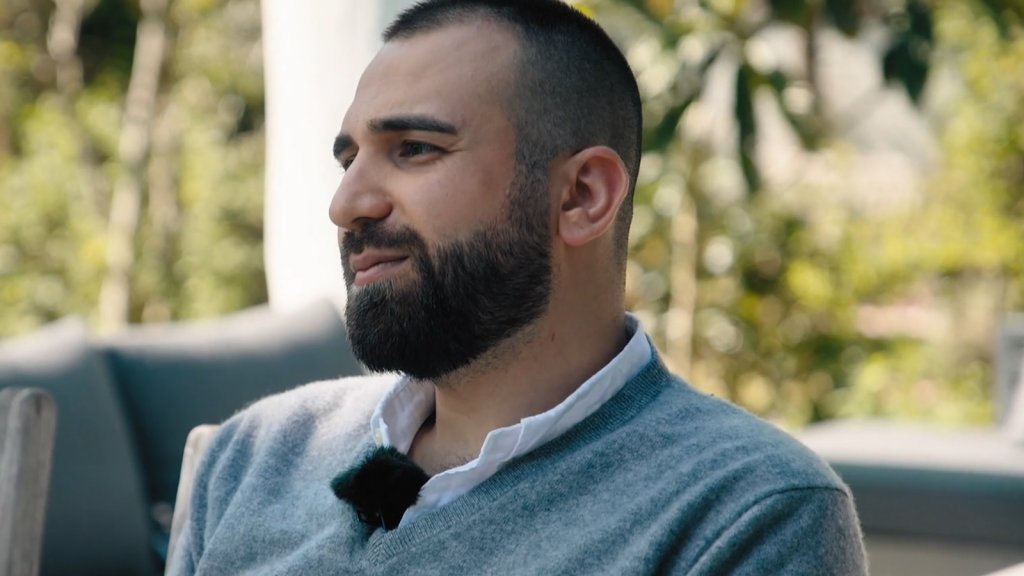Since the fall of Syrian autocrat Bashar Assad last December, very few Syrians have made the decision to return to their home country from Germany. The vast majority of them have remained but say they fear for what their future might hold in either country.
Very few Syrian war refugees have returned to their homeland from Germany since the regime change in their country in December 2024.
Research by Germany's regional public broadcaster NDR shows that by the end of June, only around 4,000 people had decided to make the journey back — out of a total of roughly one million.
In other words, only in around 250 Syrians have gone back to Syria in the past eight months — though many continue to wonder daily if and when a return could be on the cards.
Globally, around 600,000 Syrians are believed to have returned so far, according to the UN. The majority of those returnees come from neighboring countries such as Lebanon and Turkey, which have Syrian refugee populations of millions.
By the end of 2026, that number of returns is expected to reach 2.5 million — though many more remain on the fence about the country's future.

Read AlsoSyrians in Germany: Facts, figures and data
Most returnees leave without government help
In Germany, about a quarter of the Syrians who went back home chose the voluntary return route, which is subsidized by the German government and supported by the IOM.
The so-called Reintegration and Emigration Program for Asylum-Seekers in Germany/Government Assisted Repatriation Program (REAG/GARP) is designed to cover travel costs and includes a start-up allowance of 1,000 euros or more, depending on the individual situation.
Additionally, certain medical costs are also covered by this program for several months upon arrival, if needed.
In total, just shy of 1,000 of the 4,000 returnees to Syria opted to make use of this route to date.

Read AlsoGermany: Financial incentives offered to Syrians to return home
A further 193 people meanwhile turned to various individual state programs for asylum seekers who wish to go back home.
These vary from state to state and typically include additional services usually offered in kind, such as reintegration assistance, medical assistance, interpreting services, start-up assistance and more.
According to the information gathered by NDR, the majority of Syrians who left Germany — 2,727 cases — departed without having requested any such funding.
Read AlsoExplainer: Which voluntary return schemes exist for migrants in Germany?
Two thirds of Syrians plan to stay in Germany — for now
A recent survey conducted by the infratest dimap institute (a market research institute for Germany) shows that a slight majority of Germans (52 percent) are in favor of rapid returns of Syrian nationals who are poorly integrated into German society.
Meanwhile, a quarter of those surveyed advocated for a greater push in facilitating a general return of Syrians — regardless of their degree of integration.
According to the survey, 13 percent were against a return at this point, while another four percent said they were generally against a return of Syrians to their home country.
However, the mood among Syrians appears to be quite the opposite: Following Assad's fall, a survey conducted by the Institute for Employment Research (IAB), which is part of Germany's Federal Employment Agency, found in December 2024 that 66 percent of Syrians in Germany planned to remain in their adopted new home.
Read AlsoThe difference between relocation, repatriation and resettlement
How safe is Syria really?
The political situation in Syria and the security outlook remain unclear, as repeated bouts of violence since Assad's fall have resulted in hundreds of deaths of minorities in the country in recent months.
The Alawite, the Bedouin and the Druze communities have particularly suffered in a major uptick in sectarian violence this year, costing hundreds of lives
Meanwhile, a lack of sufficient infrastructure and shortcomings in basic service delivery under the new interim government continue to cast a shadow over the country's future for both those who already have returned and others who are contemplating their return.

Read AlsoSyrian returnees face 'desperate conditions', UN warns
Sally Hattab: 'Where would we go?'
Those who have remained each have their own reasons and background stories, which inform their decision.
The EPD news agency highlights one such case: 33-year-old Sally Hattab, who arrived with her husband in Germany ten years ago following a harrowing escape from the war.
She has built a new life in Munich, giving birth to two children in the decade since her departure from her home country.
"Like us, many of the refugees from back then are now part of German society — the decision was the right one for us and for Germany," Hattab told EPD, adding that a return to the war-ravaged country is unthinkable for her:
"Like us, many are working here now, their children go to school here, and their homes in Syria are all destroyed — where are they supposed to go?"
Even a visit to see the new Syria with her own eyes is still unimaginable, despite the fact that she has not seen her family there in a decade.
"I booked twice and canceled twice," she says, stressing that the situation on the ground remains too uncertain to her, even after the fall of the Assad regime.
Read AlsoAllow Syrians to go back for short visits, EU activists say
Sulaiman Tadmory: 'refugees welcome' no more
Sulaiman Tadmory has similar feelings about his homeland; the Syrian journalist also fled the war in 2015 and built a new life in Germany since, relaunching his career in Hamburg and also eventually gaining German citizenship.
In the latest episode of the news and current affairs program "Panorama" on NDR, Tadmory expresses surprise about the fact that the prospective return of Syrians to their country has become such a major political bargaining chip:
"In 2015, I truly had the feeling that I was welcome in Germany," he explains, highlighting that the mood has since shifted.
Tadmory says that he is gravely concerned about the fact that 20 percent of voters cast their ballot for the far-right Alternative for Germany (AfD) party in the federal elections held in February, which proactively wants to send foreigners back to their countries of origin.

He adds that certain views which previously only were touted by the far-right have now also found their way to the center-right of the German political landscape: "What I gather from all these slogans is that they [politicians] want as many Syrians as possible to actually leave Germany."
"While many Syrians in Germany like myself remain unsure about whether there's finally peace in Syria, these politicians are already busy discussing how quickly we should go back. Are we still even wanted in Germany, or is it time to leave?" he wonders.
Tadmory decided to go back to his hometown of Homs in Syria to see the changes for himself just weeks after Assad's fall. But within days of being there, he says he started to miss the life he had built in Hamburg.
"I have roots in Germany now. I'm not prepared to leave everything behind for a second time."
Maher Heno: 'Syria has become my Plan B'
In the NDR program, Tadmory encounters several Syrians, who are at the very least just as hesitant to go back to Syria as he is.
Maher Heno, a dentist in the city of Münster, hopes to get married to his German fiancee next spring, and plans to remain in Germany especially after witnessing first-hand during a trip to Damascus two months ago how much violence and uncertainty there still is.
However, Heno also told Tadmory that he feels hesitant about predicting what the future might hold:
"I recently watched a documentary about Nazi Germany, about Hitler and his NSDAP party and their rise to power. I don't think it would ever come to all that again [in Germany]. But I don't think people back then thought that things would go that far either," he explains.
"We see how quickly things can change. Just look at the US and Trump's ascent to power. And should things change in Germany, I probably would return. I would have to escape — and this time to Syria.

Read AlsoSyrian refugee in Turkey says he is not ready to return
with KNA, EPD, Reuters
